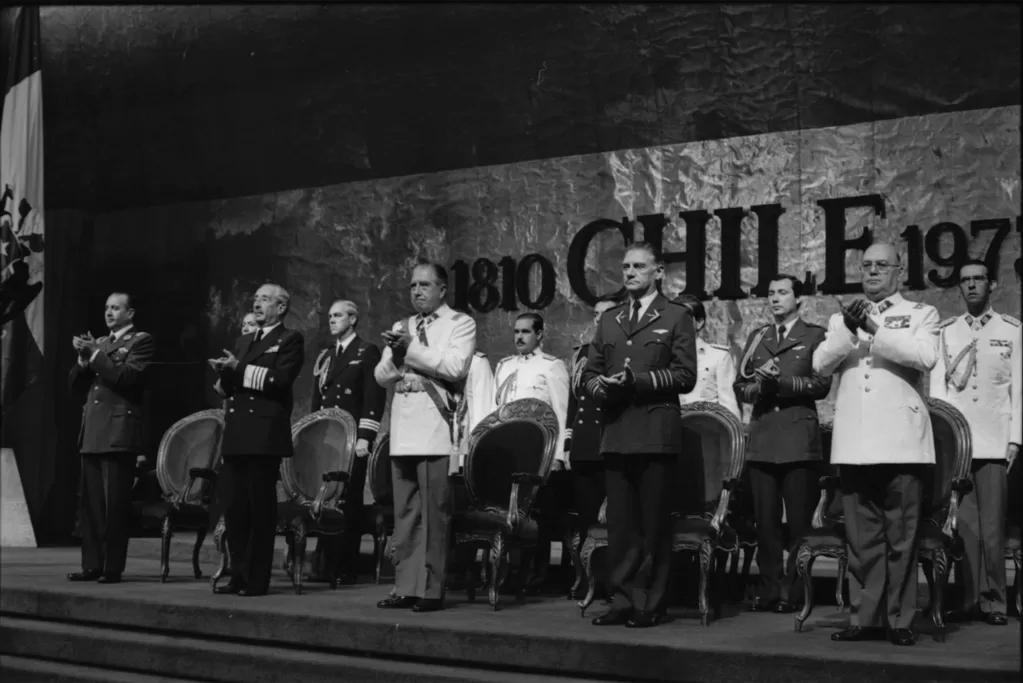Today, we mark the 50th anniversary of the coup that brought the right-wing dictator General Augusto Pinochet to power in Chile. The country remains deeply divided over Pinochet’s legacy and marches to pay tribute to the thousands of “disappeared” opponents of the regime this weekend ended in violence. Chile’s left-wing President Gabriel Boric attempted to use the anniversary as a moment of national unity, calling on all political parties to condemn the coup and celebrate democracy. He has failed to reach even this most basic consensus. According to polls, 36% of the Chilean people now believe the military was right to intervene to overthrow the Socialist government of Salvador Allende in September 1973.
Index on Censorship has always had a close relationship with Chile, particularly during the editorship of Andrew Graham-Yooll (1989-1994), who was an expert on South America. In 1991, a year after the peaceful handover of power to Pinochet’s successor, Patricio Aylwin, Index published an interview with the Chilean writer and opposition figure Ariel Dorfman, alongside the English translation of his play, Death and the Maiden. Dorfman had recently returned to his native Chile after many years in exile.
Already the fissures in Chilean society were clear. Graham-Yooll identified the difficulties faced by the Commission for Truth and Reconciliation set up to investigate the murders carried out by the Pinochet regime. “The role of the Commission was intended to be cautious and to limit the chance of antagonising the military,” wrote Graham-Yooll. “Survivors of the prisons and place of torment would not be considered. Testimony received could be with withheld from the public. Compensation to the victims would be decided in closed session of parliament.”
In the interview, Dorfman said there was a fundamental difficulty in societies transitioning from dictatorship to democracy. “Basically, there will always be a co-existence in many societies between those who committed crimes and those who were repressed. This co-existence is a fact of contemporary society. It does not happen only in the Chilean transition to democracy, which in its own way is very Chilean. It happens in all the transitions – in Eastern Europe and elsewhere. We call the situation created la impunidad – the state of impunity.”
Death and the Maiden captures Chile’s conundrum. A woman whose husband has been appointed to the Commission of Inquiry into the crimes of an authoritarian regime recognises one of her former torturers. The suspect denies his crimes, the woman craves revenge, and the husband must seek justice.
In 1991, the world was full of hope. The end of the Pinochet regime seemed to be part of a global shift towards a democratic consensus that included the fall of the Berlin Wall, the collapse of the Soviet Union and the end of apartheid. We have learnt to know better. As Dorfman was so quick to realise after his exile, the wounds remained raw and open. “We have to say ‘hello’ politely to our adversaries and there are topics we’d better not discuss, and wherever I scratched the surface I found this terrible pain,” he told Index.
It is clear from the events in Chile over the weekend that the “terrible pain” is still there 50 years after the coup. Chile is a democratic country now, but three decades of “truth and reconciliation” have not helped heal the divisions.
Our Autumn issue of the magazine, due out next week, contains two articles on the anniversary, including an interview and new short story from Ariel Dorfman. To purchase a copy click here






